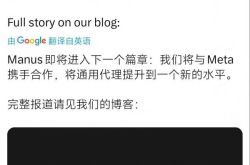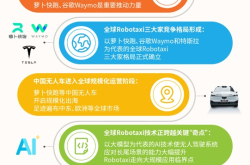The internet has become a disaster area, and the pollution behind AI is far beyond imagination...
![]() 10/08 2024
10/08 2024
![]() 675
675
Editor: Yuki | ID: YukiYuki1108
The rapid progress of AI technology has driven a revolution in internet content creation. However, the popularization of this technology has also brought a series of problems, especially in terms of content authenticity and quality. The internet is increasingly becoming a dump for AI-generated content, ranging from social media posts to academic papers.
Social platforms like Xiaohongshu are flooded with a large number of fake accounts generated by AI. These accounts are not only numerous but also active, and they profit from account trading. The content they post is difficult to distinguish from the genuine, leaving users confused while browsing.
Similarly, on music platforms like Spotify, AI cover bands are becoming increasingly active, covering popular songs and blending them into regular playlists. These AI-sung tracks are mixed with works by human artists, not only achieving high play counts but also generating considerable royalty income. Behind this apparent prosperity lies a deception of the music industry and its audience.
The academic field is also cause for concern. To cope with the pressure of publishing papers, some scholars have turned to AI technology for assistance in writing. This has led to the retraction of many papers due to misinformation and illogical images, seriously affecting the rigor and credibility of academia.
Moreover, search engine results are also inundated with AI-generated content. Content farms leverage AI to quickly produce a large volume of articles, often lacking depth and accuracy, thereby degrading the overall quality of search results.
In the face of the proliferation of AI content, internet platforms and regulatory agencies must take stricter measures. Platforms should strengthen monitoring and review of AI-generated content to ensure that only high-quality content that has undergone rigorous inspection is published.
Regulatory agencies, on the other hand, need to formulate clear regulations and standards to regulate the application of AI technology in content generation, in order to avoid the negative impacts of technology abuse.
The rapid development of AI technology has brought us convenience, but it has also presented challenges. We must be vigilant against its potential negative effects.
In the face of rapid advancements in AI technology, the internet appears particularly vulnerable, seemingly engulfed by intelligent pollution. All manner of AI-generated content floods the web, from automated social media interactions to personalized news feeds, all shaping our digital lifestyles. This pervasive intelligence seems to be eroding the authenticity of information and accelerating the spread of misinformation.
As technology continues to evolve, this situation is only likely to worsen. AI can now generate not only text and images but also music and videos, which can be easily duplicated and disseminated, making it increasingly difficult to discern truth from fiction. This phenomenon exacerbates the chaos of the online environment and fosters distrust in the content found on internet platforms.
To address this challenge, concerted efforts from all quarters are needed. Governments, technology developers, content creators, and users themselves must all shoulder the responsibility of oversight and scrutiny to ensure a clean and healthy online environment. Through these measures, we can look forward to a more authentic and reliable digital world in the future.







